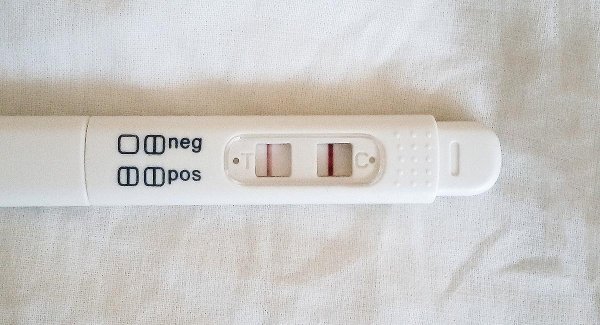
How to Cope With Male Infertility
ByJeremy Brown
Infertilityis one of the hardest experiences a young couple can experience. When they are informed that they areunable to conceive children, both men and women tend to experience a profound sense of heartache, loss, and grief. Research shows that men and women regularly report that news of infertility was the most upsetting experience of their lives. And, according to Harvard Medical School, a study of 488 American women who filled out a standard psychological questionnaire before undergoing astressreduction program concluded that women with infertility felt as anxious or depressed as those diagnosed with cancer, hypertension, or were recovering from a heart attack.
Such responses make sense, of course: To find out you cant conceive a child is to find out that child you wished a dreamed for will not arrive. Grief and sadness are natural emotions. As is stress. Reproductive issues are hard on people under any circumstance but when the problem is one of male infertility, it often becomes more difficult. Why? Not only does the idea ofmale infertilityoften carry a harsher societal stigma, but, due to stubbornness or some notion ofmasculinity, men are also generally less likely toaddress their feelingsin an honest way. These two factors mingle, forming the toxic idea that they are somehow less of a man because of fertility issues.
How many times have you heard someone say, Way to go man! when a buddy of theirs shares that his wife is pregnant? says Dr. Marissa Long, a reproductive health psychologist and founder ofThrive WISE, The sentiment expresses an accomplishment that is different from the standard, congratulations that women receive. The difference, Long adds, speaks to a widely accepted social idea that men get women pregnant rather than a couple conceiving. As such, Long says, the societal implication becomes that, if a man cant impregnate his wife, then his manliness is at stake.
Another contributing factor: fertility in general often carries with it very feminine associations. Its traditionally a female-driven pursuit and men have kind of been outcasts when it comes to trying to conceive and trying to start a family, says Dr. Greg Sommer, creator of theTrak At-Home Male Fertility Testing Kit. Walk into a Walgreens and youll also notice the family planning aisle is full of pink products.
This feminine stereotype is often played out in the media as well, where movies and sitcoms that address infertility issues often cast the woman as the one struggling with having children and the man is simply there, stoically offering support.
I can recall watching an episode ofFriendsyears ago and feeling such gratitude that the writers highlighted both male and female factors as the cause of their characters infertility, says Long. The preponderance of focus in the media, however, is on women struggling with fertility issues, which can create the idea for men that infertility along with the emotional struggle it creates is a womans issue.
But the fact of the matter is that male infertility is not uncommon. In fact, theNational Survey of Family Growthfound that 7.5 percent of men younger than age 45 have gone to a fertility doctor at some point and roughly seven percent of men are unable to conceive children. According to the National Institute of Child Health and Human Development,one-third of infertility cases are caused by male reproductive issues, one-third by female reproductive issues, and one-third by both male and female reproductive issues or by unknown factors.
Still, it can seem as though men with reproductive issues often feel as thoughthey are lesser. The general problem stems from a large part about the misconception that fertility is related to virility. Which it isnt. Unfortunately fertility and manliness get lumped together a lot, says Sommer, and people think having a high sperm count means youre more of a man.
Enrique Soto, MD, a South Miami-based fertility specialist withIVFMD, agrees that the idea ofsex drivebeing somehow connected to the ability to conceive is both false and misguided.
Testosterone, which is associated with libido and erectile function, is in fact required for sperm production but testosterone levels are not necessarily correlated with fertility, he says. One could have normal testosterone levels and have infertility.
Regardless of the reasons, or the misguided notions of virility that surround the issue, the fact remains that there is still a stigma that goes hand in hand with male infertility and it brings up very difficult feelings of depression in men.
For men who are havingreproductive issues, Dr. Long says its essential to convince yourself that theres nothing inferior or wrong. Communication, too, is key. Men need to talk openly with their partners, friends, or, if necessary, professionals about whats going on. And exercise, too, is essential when dealing with immensely stressful subjects. Such adaptive coping methods are healthy and move you forward. You should find something to engage in where you can feel a sense of efficacy and empowerment since a sense of control is often absent in this process.
Dr. Soto adds that the best course of action when men are having reproductive difficulties or infertility issues is to become as proactive and informed as possible.
The best approach is to have a consultation with a fertility expert, he says. A urologist that specializes in fertility or a reproductive endocrinologist. Having a proper diagnosis and treatment of the cause of male infertility, Soto adds, will dissipate many of these feelings and frustration. He also says that making an appointment with a professional psychologistor psychiatrist that has experience with infertility can also be of excellent value for more severe cases.
Sommer also runs a resource and community for men with fertility issues. He says its healthy to seek out someone with whom you can speak about these issues in plain, even playful terms. Anything that gets over that awkwardness barrier can go a long way towards getting the information that you actually need to take care of this, he says.
Men come on [our forums], and theyre posting questions and theyre talking to other men and sharing their stories, he says. And theyre doing it in kind of a private and anonymous safe space. Theyre not walking into their local fertility clinic wondering about who theyre going to see in the waiting room.
There are numerous online resources where men can find answers and talk with both professional and others going through the same issue. For instance, Dr. Soto highly recommendsRESOLVE, part of The National Infertility Association, which he says is a vibrant community where many infertility support groups can be found.
The bottom line is, per Sommer, for men to recognize that theyre not alone. Infertility, he adds, is a common struggle for men and there are a number of techniques and tools to help them take it on. Once there, optimism can take over.
Click here to view original article.

